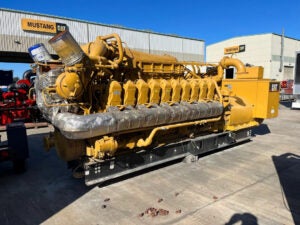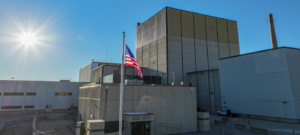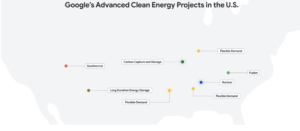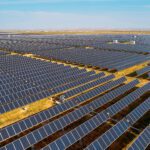New restrictions on international trade have become near-daily headlines. Sanctions, export controls, restrictions on foreign investment in the U.S., and actions prohibiting the importation of goods produced using forced labor affect all U.S. companies including those in the clean energy sector. Keeping up with these ever-evolving regulations is a difficult task, but getting smart about them now, or at least being able to spot potential issues, could save resources and heartache in the future.
Know the Relevant Laws
Sanctions. U.S. sanctions laws are designed to prevent U.S. persons (meaning a company or human being) from doing business with certain countries, sector(s) of a country’s economy, or specific individuals or companies in support of U.S. foreign policy and national security objectives. Various branches of the U.S. government, including the Treasury Department’s Office of Foreign Assets Control (OFAC) and the Department of Commerce’s Bureau of Industry and Security (BIS), maintain lists with Orwellian sounding names (including OFAC’s List of Specially Designated Nationals and Blocked Persons, and BIS’s Entity List) of banned or suspect persons. The goal of sanctions compliance is to identify and avoid doing business with sanctioned parties and countries.
Export Controls. Export control laws govern the export of nearly every product and technology from wind turbines and solar panels to missiles and pencils. Tangible exports are covered by export control laws, but so are electronic exports of software and technical data. The export control laws are based on lists of physical goods, software, and technology (collectively referred to as “items”). The relevant list for clean energy companies is the Department of Commerce’s Commerce Control List, which is part of the Export Administration Regulations. Depending on whether your products are listed in the Commerce Control List, as well as the destination country, or end-use or user of the item you intend to export, you may need to obtain an export license from the U.S. government prior to exporting the controlled item. The U.S. government also takes the position that these laws govern not only exporting items outside the U.S., but also transferring or giving access to export-controlled items to non-U.S. persons even if they are physically located in the U.S.
Foreign Investment Restrictions. There are also restrictions on foreign investment in U.S. companies that make products included in the lists of export-controlled products (so-called “critical technologies”) as well as companies that collect sensitive personal data on Americans or are involved in “critical infrastructure.” Most relevant for clean energy companies are the following categories of critical infrastructure:
- Owning or operating any system, including facilities, for the generation, transmission, distribution, or storage of electric energy comprising the bulk-power system.
- Owning or operating any electric storage resource.
- Owning or operating any facility that provides electric power generation, transmission, distribution, or storage directly to or located on a military installation.
In addition, transactions that involve real estate that is close to sensitive locations (ports and military installations) could also be subject to foreign investment restrictions. The Committee on Foreign Investment in the United States (CFIUS) is charged with the review of foreign investments in the U.S. that involve critical technology or infrastructure, sensitive person data, or real estate in close proximity to sensitive locations in order to assess a wide range of national security risks. CFIUS has the power to block such transactions or impose conditions on the deal to mitigate those risks. CFIUS can also intervene in a transaction even if it has already closed. For this reason, it is important for companies to consider the CFIUS risks and implications of foreign investments early on in the financing process.
Human Rights-Related Import Restrictions. U.S. Customs and Border Protection (CBP) enforces the Tariff Act, which includes prohibitions on the importation into the U.S. of merchandise that is mined, produced, or manufactured by forced labor. CBP enforces this law in one of three ways: it can issue a Withhold Release Order (WRO), make a finding, or impose civil penalties. WROs target merchandise from a specific manufacturer or type of good from a particular location based on evidence that reasonably indicates that a product is made with forced labor. After issuing a WRO, CBP can detain a shipment of the merchandise covered by the WRO at a U.S. port of entry. The importer then has the option to re-export the shipment to a country that will not block entry or the importer can contest the detention by providing proof that the items were not produced with forced labor.
After receiving conclusive evidence (a higher standard of proof in comparison to that required to issue a WRO) that merchandise mined, produced, or manufactured by forced labor is being, or is likely to be, imported into the U.S., CBP can issue a finding. Shipments subject to findings can be denied entry into the U.S. or seized by CBP unless the importer establishes that the products were not made using forced labor. Unlike imports subject to WROs, the importer of merchandise subject to a finding cannot choose to re-export the shipment to a third country.
Although rare, CBP can also choose to impose a civil penalty on importers of merchandise associated with forced labor. The maximum penalty is equal to the domestic value of the merchandise.
Sanctions Risks for Clean Energy Companies
The U.S. has long used sanctions to target the oil and gas industries of foreign adversaries including Iran, Russia, and Venezuela. However, it looks likely that sanctions may soon target the clean energy sector. For example, climate envoy, John Kerry, has confirmed to Congress that the Biden administration is considering imposing sanctions on certain Chinese companies based on their use of forced labor in the production of solar panels and other renewable energy components. The allegations were included in a report issued in May of 2021 by the Sheffield Hallam University Helena Kennedy Centre for International Justice. The report outlines evidence that forced labor is used in China’s Xinjiang region for various aspects of the solar energy supply chain, including the mining and processing of quartz into metallurgical-grade silicon, and the production of polysilicon, which is then used by Chinese solar module manufacturers to make photovoltaic cells. Xinjiang produces nearly half of the world’s supply of solar-grade polysilicon. Any sanctions imposed on solar energy-related companies in Xinjiang could have a major impact on global solar power supply chains.
The U.S. has previously taken aim at China’s clean energy industry by adding China General Nuclear (CGN) to BIS’s Entity List, which means that U.S. companies are barred from exporting U.S.-origin products to CGN without a license. In addition, the Pentagon and OFAC previously added China Three Gorges Corp. Ltd., a large state-owned power company that is growing its wind and solar businesses, as well as China Nuclear Engineering & Construction Corp., which provides construction services for nuclear projects, to its list of Communist Chinese Military Companies (CCMCs). Demonstrating the importance of continually monitoring the ever-changing sanctions lists, the Biden administration updated this list (now known as the Chinese Military-Industrial Complex Companies List or CMIC) on June 3, 2021, and removed China Three Gorges Corp. Ltd. Inclusion on this list prohibits U.S. individuals and companies from buying certain securities issued by these companies. Being designated a CMIC could lead to additional sanctions down the road.
Sanctions on Chinese clean energy companies are not the only time that U.S. sanctions have hit the clean energy sector. As relations with Cuba thawed under the Obama administration, BIS and OFAC permitted the export of items related to renewable energy to Cuba. However, the re-imposition of sanctions and strict export controls by the Trump administration meant market opportunities for U.S. clean energy companies in Cuba were short-lived. It is unclear whether the Biden administration will open those doors again.
In addition to the well-known restrictions on Iran’s nuclear sector, the U.S. has also imposed sanctions on certain Iranian solar energy companies. All of this is to emphasize the importance of establishing a sanctions compliance program for your company and ensuring that you screen all of your business partners—suppliers and customers—to ensure they are not subject to sanctions.
Export Controls Related to Clean Energy
Those operating in the nuclear energy sector are doubtlessly aware of the various export restrictions associated with nuclear technology so we will not focus on them here. Less well‑known are export controls related to other forms of clean energy. For instance, although an export license is not required to export wind turbines themselves, various aspects of wind turbine blade technology are subject to export controls including carbon fiber, carbon fiber prepregs, tape laying, tow/fiber placement machines, and related software and technical information. In addition, the machine tools and controllers used to manufacture wind turbine gear case assemblies and hubs may require an export license as well as software and technical information related to those tools and controllers.
Some items related to solar power are also subject to export controls. Certain high energy cells may require an export license, depending on the destination, including monocrystalline silicon and polycrystalline silicone solar cells, as well as amorphous and organic thin film solar cells. In addition, equipment that uses Metal-Organic Chemical Vapor Deposition is used to make certain high-level solar cells including GaAS and III-V solar cells. That equipment and related software and technical information require an export license to most destinations.
Certain fuel cells exported without being incorporated into a lithium-ion battery could also require an export license. Further, Molecular Beam Epitaxial (MBE) growth equipment, which is used to conduct research in the solar energy industry, also requires an export license for many destinations. And while solar panels for consumer and commercial use do not require an export license except to embargoed countries (such as Cuba, Iran, Syria, and North Korea), certain space-qualified solar cells and assemblies do require an export license.
Many clean energy companies assume that export control laws do not impact their business. While this may be true for many products used or sold by the clean energy industry, it is still vital to determine whether any of your products or technologies are included in the export control lists and, if so, whether an export license is required to export them.
If clean energy companies think their freight forwarder or customs broker will take care of this for them, think again. Those service providers do not know the clean energy industry to the degree necessary to conduct an export controls assessment. In addition to ensuring compliance with export control laws, knowing whether your products or technology fall within one of the export control lists is important because that determination will factor into whether foreign investment in your company could trigger review by CFIUS.
Foreign Investment Restrictions
Clean energy deals have been at the center of some high-profile cases involving foreign investment in the U.S. In 2012, Ralls Corp., a U.S.-based holding company owned by two Chinese nationals, purchased assets that included a wind project site near a Naval Air Base in Oregon. CFIUS reviewed the transaction several months after it closed and determined that Chinese ownership of a wind farm so close to the Naval Air Base posed an unacceptable national security risk and ordered Ralls to divest the wind farm.
More recently, GH America Energy, a U.S. subsidiary of China-based Guanghui Energy Co., purchased a 130,000-acre parcel of land in Texas that it plans to turn into a wind farm. That land is within 70 miles of Laughlin Air Force Base. CFIUS cleared the transaction in June 2020 as Laughlin Air Force Base is not included in the list of sensitive facilities contained in the CFIUS regulations related to real estate transactions. This has not stopped state and federal legislators from moving to pass legislation to stop the project from going forward. The intense scrutiny of foreign investment in clean energy projects that might give adversaries a physical presence near sensitive military sites or the perceived ability to undermine the security of the U.S.’s energy grid should give U.S.-based clean energy companies pause when deciding whether to take foreign investment or accept a buyout offer, particularly from parties based in China and Russia.
Companies that produce, design, test, manufacture, or develop one of the export-controlled items described earlier should also know that CFIUS has the authority to review foreign investment in those companies as well. This is because items that appear on the Commerce Control List, for example, are considered “critical technologies” by CFIUS.
Human Rights-Related Import Restrictions Related to Clean Energy
There are currently no CBP WROs or findings related to clean energy products. However, as noted above, the Biden administration is investigating reports that certain Chinese companies in the Xinjiang region are using forced labor in the production of solar panels and other renewable energy components. If the Biden administration chooses not to impose sanctions on these entities, it could nevertheless subject their merchandise to a CBP WRO or finding, which would restrict imports of these products into the U.S.
Clean energy companies will want to review their supply chains to assess any potential impact from being unable to import solar panels and other renewable energy components from China. Companies should also develop supply chain due diligence procedures to review and monitor suppliers’ labor standards.
Remaining Vigilant
Overall, even though international trade laws currently do not impact most activities of the clean energy sector, some compliance risks do exist and are likely to increase over time. Those risks should be manageable by implementing practical trade compliance measures and staying attuned to the ever-changing landscape of international trade laws.
—Luciano Racco is counsel in Foley Hoag LLP’s Business Department and co-chair of the firm’s Trade Sanctions & Export Controls practice.










